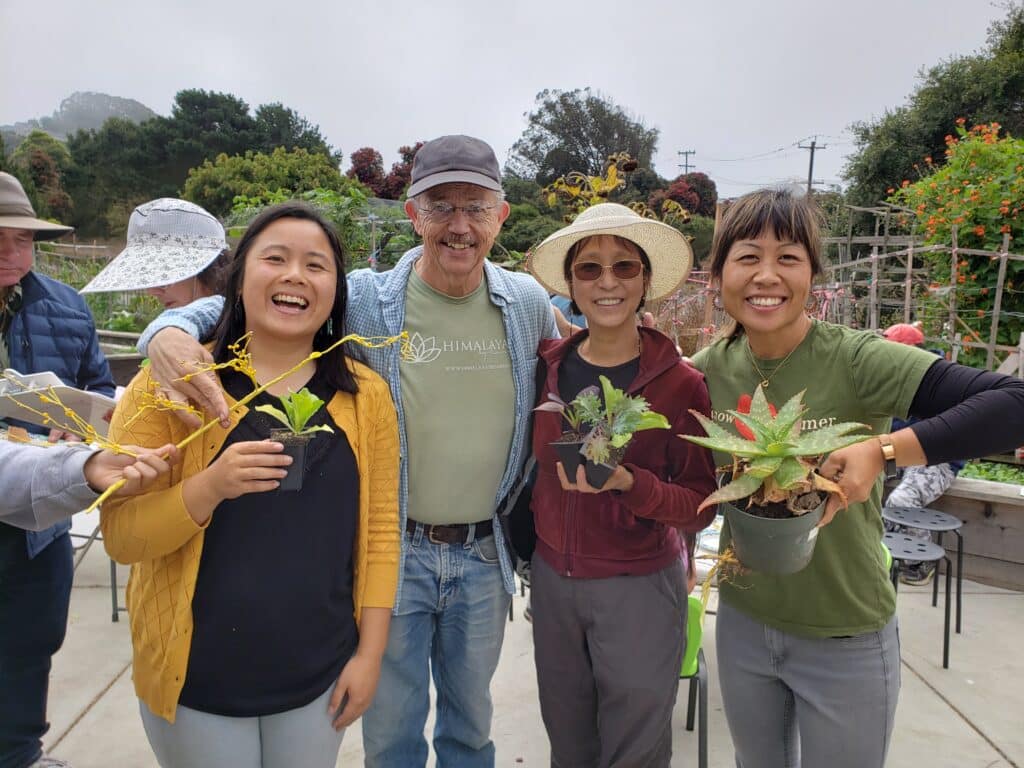
By Dr. Jamie Chan, Ed.D.
Director of Programs and Partnerships, Gardens of Golden Gate Park
Steering Committee and Founding Member, Sisterhood Gardens
Dr. Chan, garden educator and food justice advocate, talks about the development of a community-based food security project called Sisterhood Gardens, in San Francisco, CA. What started out as a partnership with the city of San Francisco to offer garden plots led to a space for transformational change in our local community and a model for future mixed-use community garden spaces.
In 2014, Former San Francisco District 11 Supervisor John Avalos, the Department of Public Works, SF Recreation and Parks, and the San Francisco Parks Alliance came together to propose an exciting and much-needed use for a 2+ acre parcel of unused land by the busy Brotherhood Way corridor in the Oceanview-Merced Heights-Ingleside (OMI) district: a supportive and sustainable gardening group called Sisterhood Gardens.
This community project benefited from the leadership of the Chinese Progressive Association (CPA) from its inception. Founded in 1972, the CPA educates, organizes, and empowers the low-income and working-class immigrant Chinese community in San Francisco to build collective power with other oppressed communities to demand better living and working conditions and justice for all people.
Sisterhood was CPA’s first and only food security project to benefit from their long-term stewardship. One of the strengths in the development of Sisterhood Gardens is CPA’s focus on bilingual, interracial, and intergenerational inclusion in our work. There were numerous facilitated conversations between different groups in our district. In addition to the community feedback sessions, the community was invited to visit other food gardens in the city to understand effective design and challenges of farming in an urban setting.
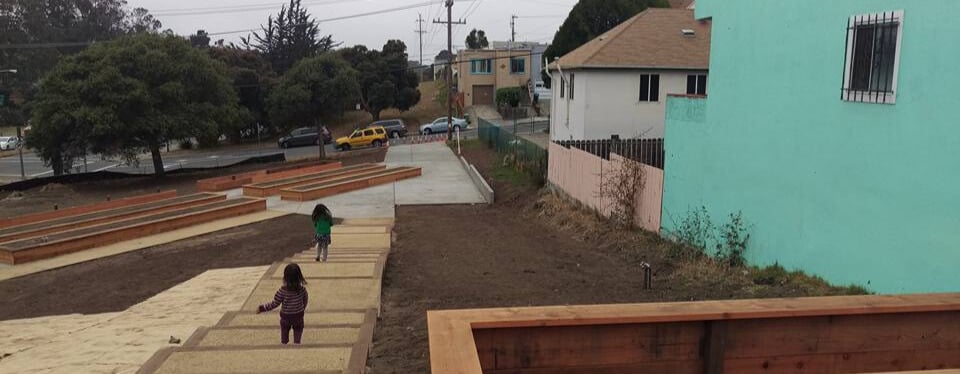
After three years of planning, we broke ground in 2017 with active involvement from the local residents and city offices. From building the garden plots to developing education and cultural programs, Sisterhood Gardens has always been a collaborative and community-driven effort. Seven years later this garden has grown into a thriving communal space that welcomes people to do more than grow food.
Sisterhood Gardens has an active programming series offering free classes and workshops, a native plant and pollinator garden, community art installations, and is open to the public every day. We also have the privilege of serving as a place of gathering for other local and cultural convenings.
Addressing Cultural Food Security and Conservation
Initial surveys of our district identified that we had an elderly Chinese immigrant community with little access to culturally relevant and affordable food. Many of these residents were monolingual and were of low socio-economic status. At the time, there was less walkable access to food stores that carried culturally relevant foods for our elders.
Sisterhood Gardens provided rentable garden plots in addition to communal growing spaces. Soon the plots were filled with a bounty of mustard greens, bok choy, and snow peas. Elders would bring their grandchildren to tend the garden alongside and visitors were often handed a bundle of greens to bring home, sometimes with no conversations exchanged beyond a smile and open hands.
We initially offered only gardening seminars focused on organic practices based on Integrated Pest Management principles. We soon realized that the community engaged more when we provided robust translations of our educational events and incorporated the expertise/cultural food stories of our garden members.
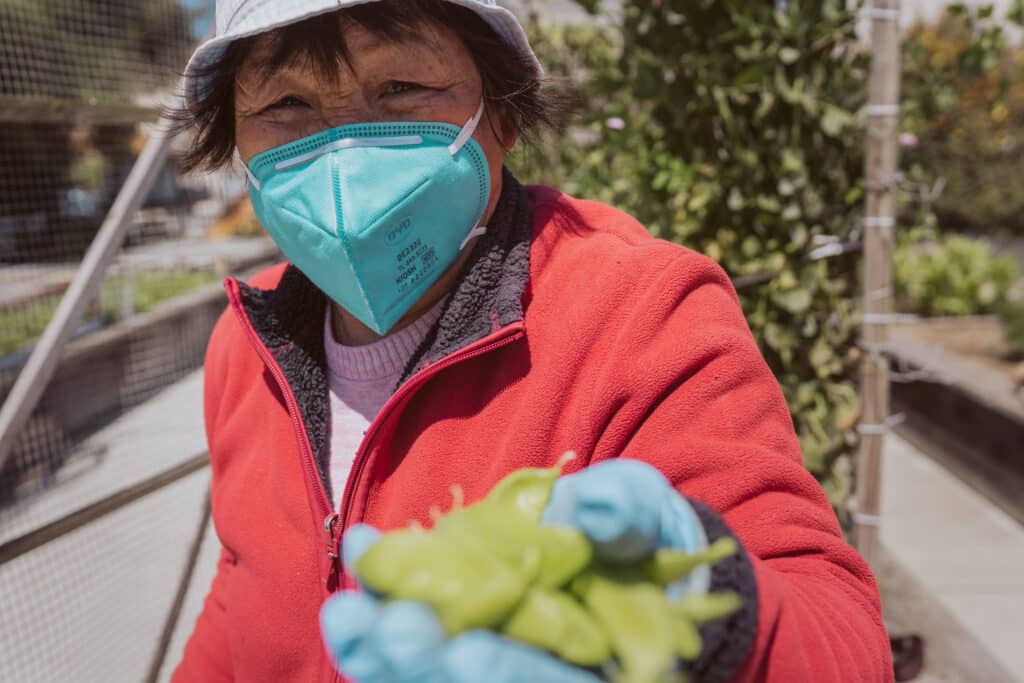
Bilingual interpretive signs were developed around the garden and we sought grant funding to design and build garden beds dedicated to educating our visitors about conserving the native flora and fauna of our region.
Education, Wellness, and Intergenerational Programming
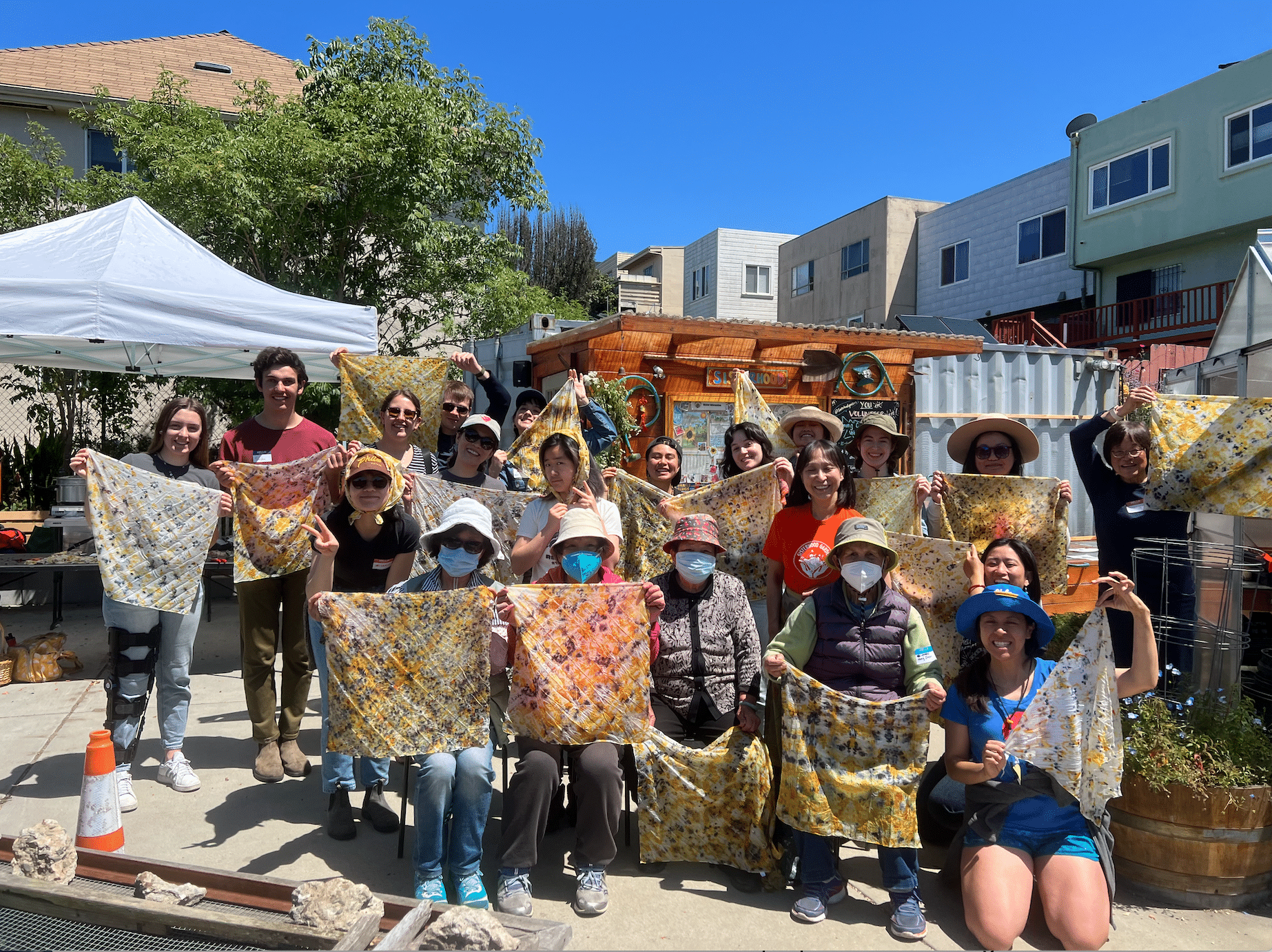
A key aspect of our garden is the ability to host public gatherings and programs. This has led to the creation of an outdoor classroom space to host medicinal food talks, demonstrations, and cooking activities that celebrate the various cultural histories in our garden. Over the years we have started to incorporate wellness activities including Tai Chi, Qigong, and Yoga. We expanded programs to feature ethnobotanical talks, edible seedling giveaways and family days focused on botanical arts for all ages and family-friendly gardening projects. Through our programs, we have attracted thousands of visitors to our site, over 90% of which are people of color seeking to connect with both community and their own families over the stewardship of the land.
Environmental Justice and Interracial Healing In A Diverse Urban Setting
CPA has a history deeply rooted in advocacy and Sisterhood Gardens has served as a site to foster critical conversations about environmental justice in our city. We recently hosted a critical conversation and vision statement workshop about the value of green spaces in the healing of San Francisco’s historical redlining and environmental racism. The neighborhood that we are located in, is identified as an area of moderate to great environmental justice burden.
This situates us to talk about the connections our garden has to address this long pattern of exclusion and access to healthy food, wellness, and green space. Sisterhood continues to bring our communities together and we do it in justice-focused and humanizing ways that center transformation and healing. We grow food, we tend the earth, but we also work on a more equitable future for our beautiful and diverse city.
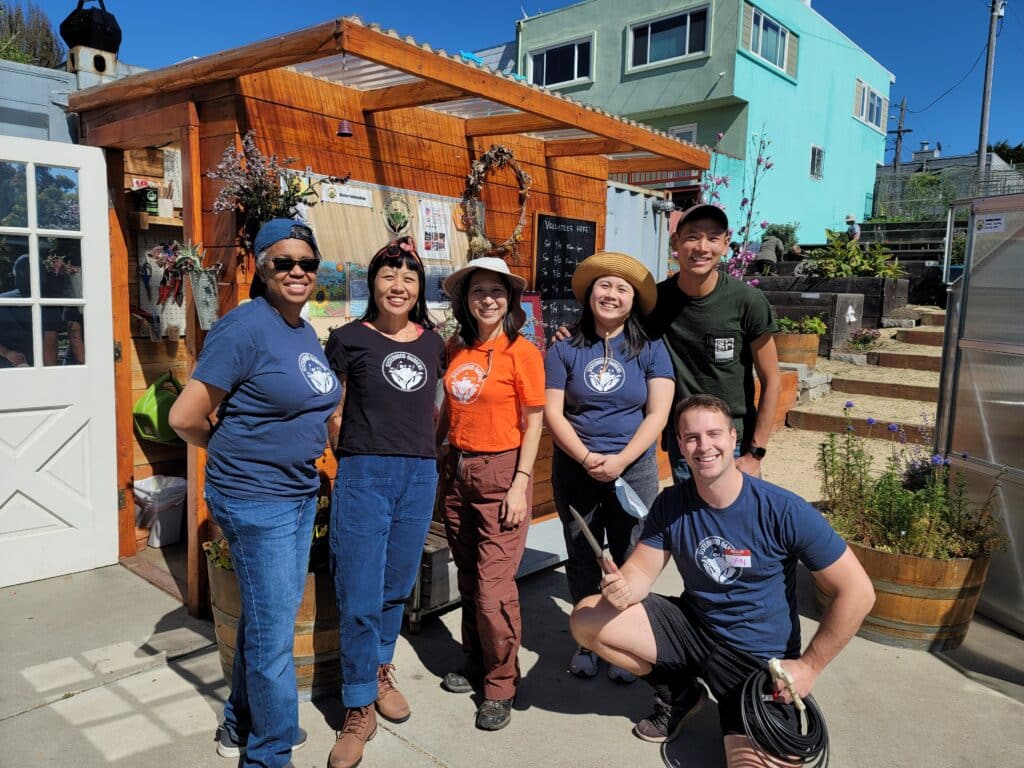
Follow Sisterhood Sardens online on Facebook and Instagram @SisterhoodGardens and learn more about Dr. Chan’s work in garden advocacy online at FogCityGardener.com and on Instagram @FogCityGardener.